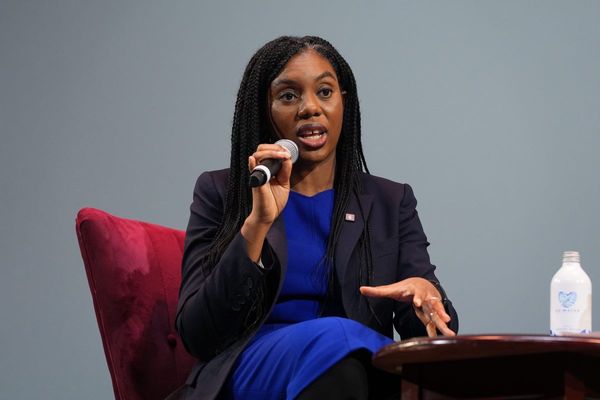Inflation is easing, says a top strategist for BlackRock, the world's largest asset manager. But it's not falling to a level that Americans have grown used to, at least not any time soon.
Tony DeSpirito, chief investment officer of U.S. Fundamental Equities for BlackRock, the world's largest asset manager, says interest rate increases by the Federal Reserve will take short-term pressure off of inflation. But, longer-term, inflation is going to stay higher than many Americans would probably like.
DeSpirito, who is also lead manager of $18.7 billion BlackRock Equity Dividend Fund (MDDVX), adds that decarbonization and deglobalization will help fuel inflation.
By decarbonization, DeSpirito is referring to the movement away from energy systems that put carbon dioxide and other greenhouse gases into the atmosphere.
Deglobalization refers to the return of manufacturing and other types of jobs to the U.S. from China and other emerging markets.
Decarbonization and deglobalization are both politically charged policies. Both have passionate backers and opponents.
Inflation And Dividend Growth
DeSpirito made his observations in a talk with IBD about how he runs his fund, which is outperforming the broad stock market and its peer group. The fund's total return this year going into Wednesday was -14.21% vs. -22.58% for the S&P 500 and -16.06% for its large-cap value fund rivals tracked by Morningstar Direct.
His fund has been able to outperform the broad market and its chief rivals because "we're a dividend fund focused on dividend growth," he said. His portfolio, whose other manager is David Zhao, aims for companies "that not only pay dividends but also grow their dividends over time."
The Russell 1000 Value Index is the fund's formal benchmark. That bogey is down 17.22% so far this year. BlackRock Equity Dividend has a 12-month trailing dividend yield of 1.31%.
DeSpirito, who notes that he is "not an economist or a macro forecaster," said, "We're obviously at … a 40-year high for inflation. It's pretty clear to me that the data shows that inflation is rolling over." The real questions, he adds, are how quickly will it subside? And what level will it settle down at?
The cost of new technologies that can reduce greenhouse gases will buoy inflation, he says.
Weaning the U.S. off globalization will also be inflationary, he says. Shifting manufacturing to China and other emerging markets enabled many businesses to cut costs. Reversing that, he says, will be inflationary because it will raise costs.
"I don't think we go back to the lows of the first global financial crisis (of 2007-2008) in terms of inflation," DeSpirito said. "This is going to be a long-term issue. Inflation won't be as high as it is today, but it won't be as low as it was."
DeSpirito Likes Health Care
Health care was the largest sector in DeSpirito's fund as of June 30. It had a 22% weighting vs. 17% for the Russell 1000 Value Index. Financials were second, with 19.9% vs. 19.5% for the benchmark.
"We have a big overweight in health care, our largest overweight," DeSpirito said. "But we're underweight in consumer staples and utilities. Why is that? Because we see lots of upside in health care. We see very limited upside in staples and utilities."
The fund's top 10 holdings included managed care providers Elevance Health and Humana, implantable cardiac device maker Medtronic, cancer treatment maker AstraZeneca and drugmaker Sanofi, says the fund's June 2022 fact sheet.
"Health care has grown and continues to grow as a percentage of GDP, whereas staples and utilities shrink as a percentage of GDP," DeSpirito said.
Health Care Sector Tailwinds
DeSpirito expects health care in general to outperform consumer staples and utilities even if the U.S. slips into a recession, due to the Fed fighting inflation. "Health care shows more resiliency than staples and utilities in past recessions," he said. "In the next recession, health care will do even relatively better because more of the health care spend has been moved onto the government budget, away from the consumer budget."
The growth of government payments for health care is due to an aging population, Medicaid expansion and creation of health care exchanges by the Affordable Care Act.
In addition, medical device makers and health care providers generally should see earnings improvements as elective procedures rebound. "Covid really impacted their earnings because people were afraid to go to the hospital and get elective procedures," DeSpirito said.
Further, many health care stocks have more attractive valuations than staples and utilities. "You can see how this lines up with our philosophy: better quality (stocks) at a lower price," DeSpirito said.
Follow Paul Katzeff on Twitter at @IBD_PKatzeff for tips about personal finance and actively run portfolios that consistently outperform.







